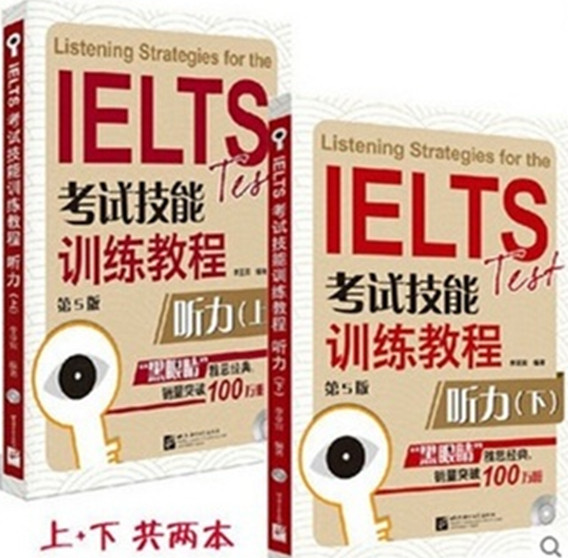2019年1月26日雅思阅读考试回忆及解析
题目分析
Passage 1
文章题材:说明文(自然科普)
文章题目:新西兰儿童Robin发现头盖骨之谜
文章难度:★★
文章内容:新西兰儿童Robin发现了海边的一个头盖骨,三位博士对此发现进行了研究,并测定这个头骨的年代属于296年。
题型及数量:9填空题+4判断题
题目及答案:
1. TRUE
2. FALSE
3. NOT GIVEN
4. FALSE
5. specialists
6. European
7. radiocarbon
8. 296
9. race
10. gender
11. Australia
12. archaeologists
13. shipwreck
可参考真题:C7T3P2:Population movements and genetics
Passage 2
文章题材:说明文(自然科普)
文章题目:Coral Reef (珊瑚礁)
文章难度:★★★
文章内容:文章介绍了珊瑚礁的分布和价值,存在的问题(减少)以及人们为保护珊瑚礁做出的努力。
题型及数量:6个段配信息+6个判断+1主旨类单选
题目及答案:
14. 待补充
15. A
16. C
17. A
18. F
19. C
20. NOT GIVEN
21. TRUE
22. NOT GIVEN
23. FALSE
24. NOT GIVEN
25. TRUE
26. C. economic importance about coral reef
可参考真题:C8T2P2:The Little Ice Age
考试原文:
Coral reefs
Coral reefs are underwater structures made from calcium carbonate secreted by corals. Coral reefs are colonies of tiny living animals found in marine waters that contain few nutrients. Most coral reefs are built from stony corals, which in turn consist of polyps that cluster in groups.
A Coral reefs are estimated to cover 284,300 km2 just under 0.1% of the oceans' surface area, about half the area of France. The Indo-Pacific region accounts for 91.9% of this total area. Southeast Asia accounts for 32.3% of that figure, while the Pacific including Australia accounts for 40.8%. Atlantic and Caribbean coral reefs account for 7.6%. Yet often called “rainforests of the sea", coral reefs form some of the most diverse ecosystems on Earth. They provide a home for 25% of all marine species, including fish, mollusks , worms, crustaceans, echinoderms, sponges, tunicates and other cnidarians. Paradoxically, coral reefs flourish even though they are surrounded by oceanwaters that provide few nutrients. They are most commonly found at shallow depths in tropical waters, but deep water and cold water corals also exist on smaller scales in other areas. Although corals exist both in temperate and tropical waters, shallow-water reefs form only in a zone extending from 30° N to 30° S of the equator. Deep water coral can exist at greater depths and colder temperatures at much higher latitudes, as far north as Norway. Coral reefs are rare along the American and African west coasts. This is due primarily to upwelling and strong cold coastal currents that reduce water temperatures in these areas (respectively the Peru, Benguela and Canary streams). Corals are seldom found along the coastline of South Asia from the eastern tip of India(Madras) to the Bangladeshand Myanmar borders. They are also rare along the coast around northeastern South America and Bangladesh due to the fresh water release from the Amazon and Ganges Rivers, respectively.
B Coral reefs deliver ecosystem services to tourism, fisheries and coastline protection. The global economic value of coral reefs has been estimated at as much as $US375 billion per year. Coral reefs protect shorelines by absorbing wave energy, and many small islands would not exist without their reef to protect them.
C The value of reefs in biodiverse regions can be even higher. In parts of Indonesia and the Caribbean where tourism is the main use, reefs are estimated to be worth US$1 million per square kilometer, based on the cost of maintaining sandy beaches and the value of attracting snorkelers and scuba divers. Meanwhile, a recent study of the Great Barrier Reef in Australia found that the reef is worth more to the country as an intact ecosystem than an extractive reserve for fishing. Each year more than 1.8 million tourists visit the reef, spending an estimated AU$4.3 billion (Australian dollars) on reef-related industries from diving to boat rental to posh island resort stays. In the Caribbean, says UNEP, the net annual benefits from diver tourism was US$2billion in 2000 with US$625 million spent directly on diving on reefs. Further, reef tourism is important source of employment, especially for some of the world's poorest people. UNEP says that of the estimated 30 million small-scale fishers in the developing world, most are dependent to a greater or less erextent on coral reefs. In the Philippines, for example, more than one million small-scale fishers depend directly on coral reefs for their livelihoods. The report estimates that reef fisheries were worth between $15,000 and $150,000per square kilometer a year, while fish caught for aquariums were worth $500 a kilogram against $6 for fish caught as food. The aquarium fish export industry supports around 50,000 people and generates some US$5.5 million a year in SriLanka along.
D Unfortunately, coral reefs are dying around the world. In particular, coral mining, agricultural and urban runoff, pollution (organic and inorganic),disease, and the digging of canals and access into islands and bays are localized threats to coral ecosystems. Broader threats are sea temperature rise, sea level rise and pH changes from ocean acidification , all associated with greenhouse gas emissions. Some current fishing practices are destructive and unsustainable. These include cyanide fishing, overfishing and blast fishing. Although cyanide fishing supplies live reef fish for the tropical aquarium market, most fish caught using this method are sold in restaurants, primarily in Asia, where live fish are prized for their freshness. To catch fish with cyanide, fishers dive down to the reef and squirt cyanide in coral crevices and on the fast-moving fish, to stun the fish making them easy to catch. Overfishing is another leading cause for coral reef degradation. Often, too many fish are taken from one reef to sustain a population in that area. Poor fishing practices, such as banging on the reef with sticks (muro-ami),destroy coral formations that normally function as fish habitat. In some instances, people fish with explosives (blast fishing), which blast apart the surrounding coral.
E Tourist resorts that empty their sewage directly into the water surrounding coral reefs contribute to coral reef degradation. Wastes kept in poorly maintained septic tanks can also leak into surrounding ground water, eventually seeping out to the reefs. Careless boating, diving, snorkeling and fishing can also damage coral reefs. Whenever people grab, kick, and walk on, or stir up sediment in the reefs, they contribute to coral reef destruction. Corals are also harmed or killed when people drop anchors on them or when people collect coral.
F To find answers for these problems, scientists and researchers study the various factors that impact reefs. The list includes the ocean's role as a carbon dioxide sink, atmospheric changes, ultraviolet light , ocean acidification, viruses, impacts of dust storms carrying agents to far flung reefs, pollutants, algal blooms and others. Reefs are threatened well beyond coastal areas. General estimates show approximately 10% of the world’s coral reefs are dead. About 60% of the world's reefs are at risk due to destructive, human-related activities. The threat to the health of reefs is particularly strong in Southeast Asia, where 80% of reefs are endangered.
G In Australia, the Great Barrier Reef is protected by the Great Barrier Reef Marine Park Authority, and is the subject of much legislation, including a biodiversity action plan. Inhabitants of Ahus Island, Manus Province, Papua New Guinea, have followed a generations-old practice of restricting fishing in six areas of their reef lagoon. Their cultural traditions allow line fishing, but not net or spear fishing. The result is both the biomass and individual fish sizes are significantly larger than in places where fishing is unrestricted.
Passage 3
文章题材:说明文(商业科普)
文章题目:Flexible Work
文章难度:★★★
文章内容:文章介绍了弹性的工作制度给员工和公司带来的好处
题型及数量:LOH(主旨匹配)8题+填空题3题+人名匹配3题
题目及答案:
27. C
28. A
29. D
30. B
31. 待补充
32. F
33. H
34. I
35. C
36. A
37. B
38. satisfaction
39. email
40. tasks
可参考真题:C13T2P3:Making the most of trends
- 01-21·2019年1月19日雅思阅读考试回忆及解析
- 01-21·2019年1月19日雅思阅读考后回忆
- 01-18·2019年1月17日雅思阅读考后回忆(网友版)
- 01-14·2019年1月12日雅思阅读考试回忆及解析
- 01-12·2019年1月12日雅思阅读真题回忆(网友版)
- 12019-01-282019年1月26日雅思阅读考试回忆及解析
- 22019-01-212019年1月19日雅思阅读考试回忆及解析
- 32019-01-212019年1月19日雅思阅读考后回忆
- 42019-01-072019年1月5日雅思阅读考试回忆及解析
- 52019-01-072019年1月5日雅思阅读考后回忆
编辑推荐
- 模拟试题
- 历年真题





